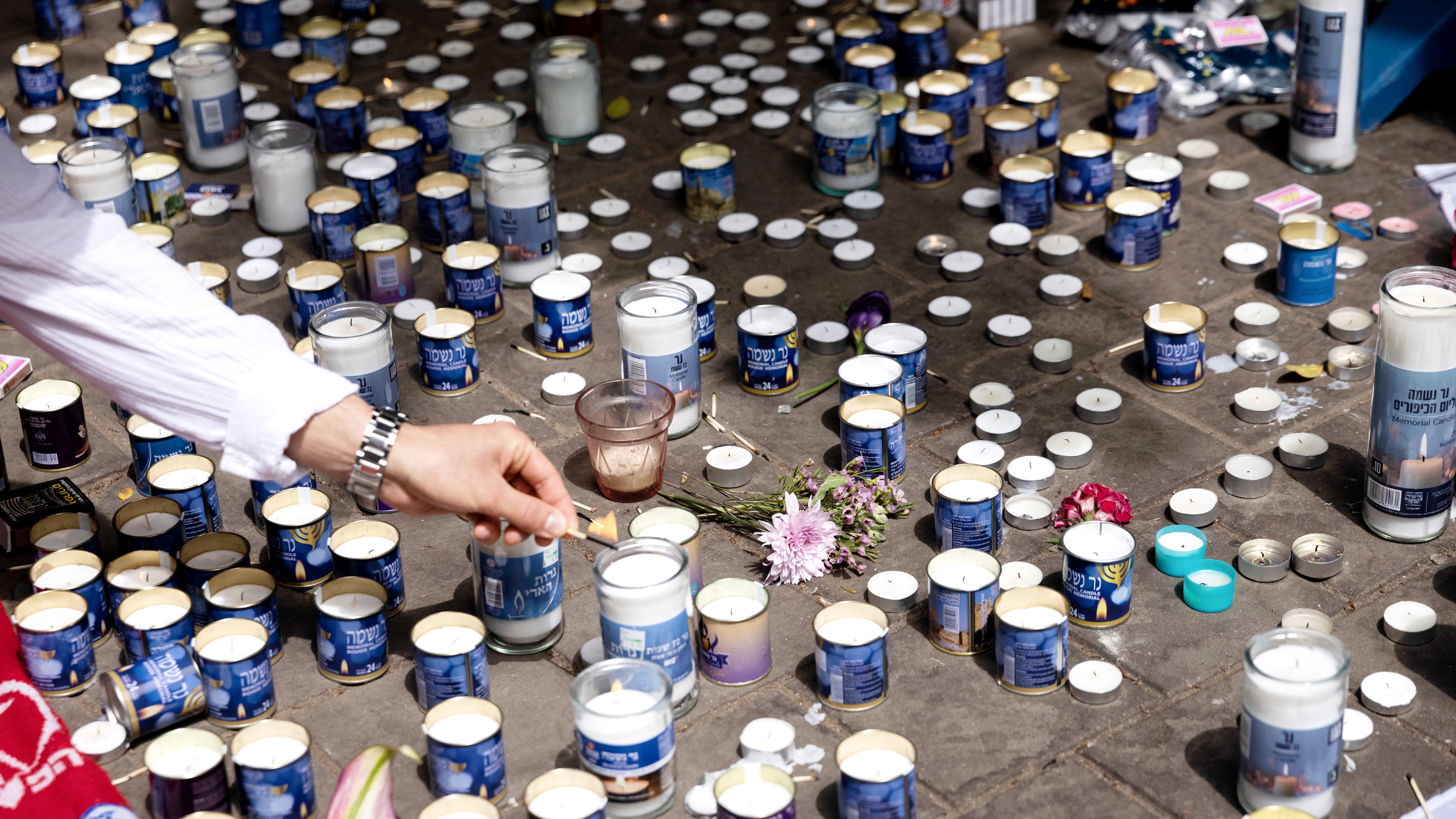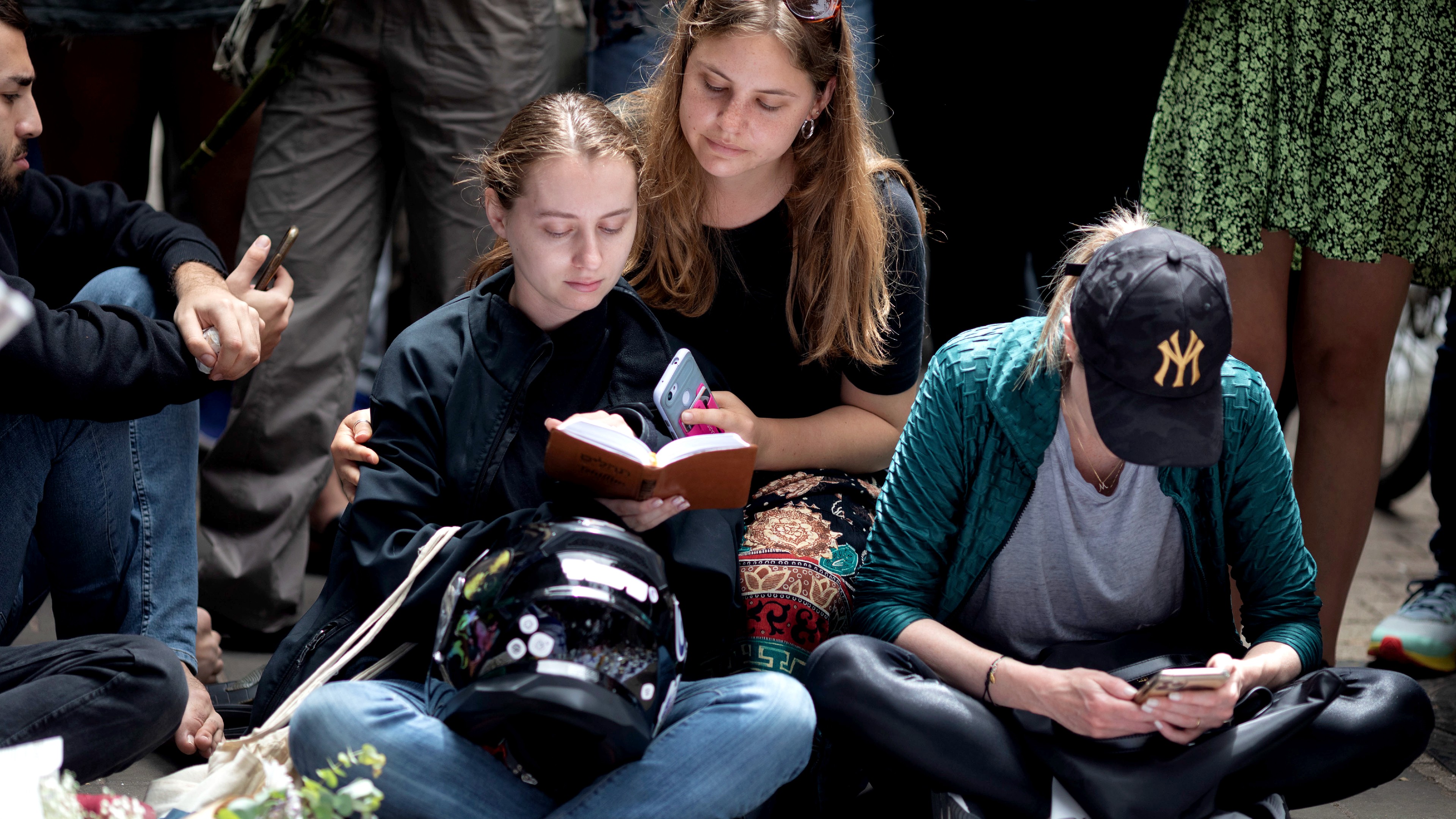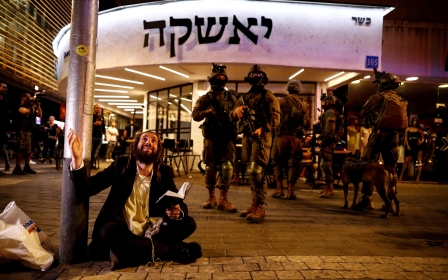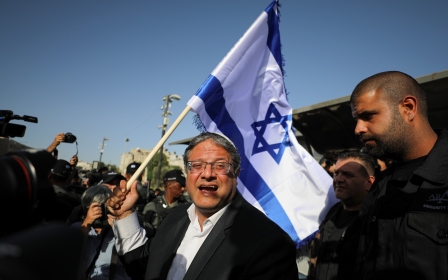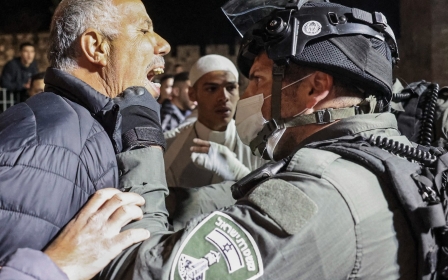Israel: Tel Aviv residents left reeling after deadly shooting
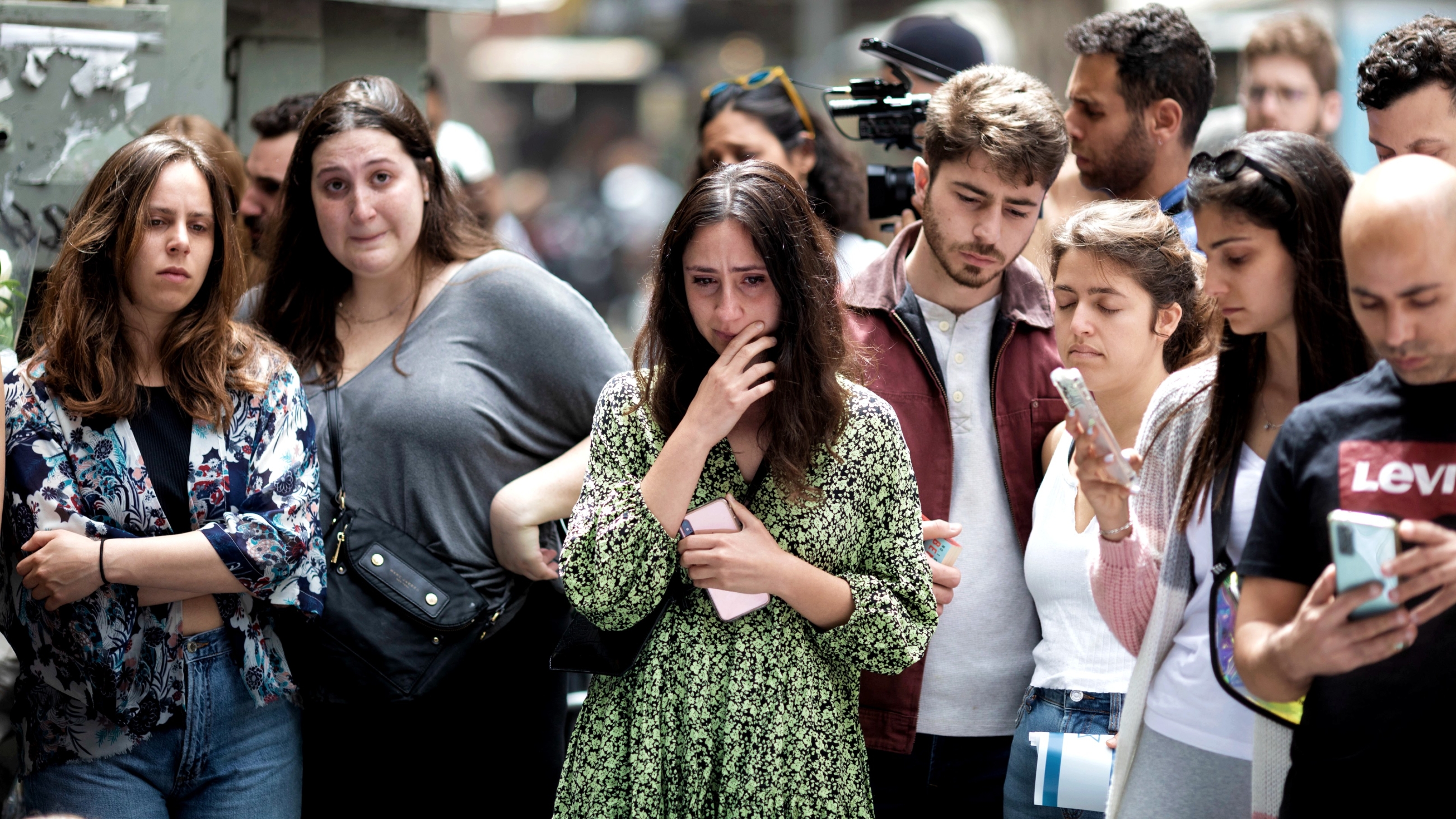
Tel Aviv woke up to a sombre Friday.
Trying to digest what had just happened in the central Israeli city, hundreds of people made their way early in the morning to the location of last night's shooting at the Ilka bar, lighting memorial candles and grieving together.
At 9pm local time on Thursday, a shooter began spraying bullets in the crowded area, leaving three Israelis dead and another ten wounded.
As the night wore on, hundreds of police, soldiers and special unit forces, with their weapons drawn, scoured the streets in the area, going house to house, looking for the assailant.
After a nine-hour manhunt, he was found and shot dead just outside a mosque in nearby Jaffa. Police identified him as 28-year-old Raad Hazem from the occupied West Bank city of Jenin.
New MEE newsletter: Jerusalem Dispatch
Sign up to get the latest insights and analysis on Israel-Palestine, alongside Turkey Unpacked and other MEE newsletters
In recent years, Tel Aviv has been spared similar incidents involving Palestinian shooters. And despite deadly attacks in several other Israeli cities in recent weeks, life in Tel Aviv seemed to be proceeding normally.
On Thursday evening, Dizengoff Street, a popular downtown venue, was filled with young people out to enjoy the start of the weekend. The weather was warm and the bars and cafes were full of visitors both indoors and at sidewalk tables outdoors.
Then everything descended into chaos when the first gunshots were heard.
"I was home, getting ready to go out," said Michal Ovadia, 32, who lives one floor up in the building where the bar is located. "I heard a shot and thought it was a chair falling over, but then I heard a crazy burst of fire and realised someone was shooting."
Everyone quickly fled the area while others hid inside businesses and apartment buildings, unable to leave as the hours passed.
"I looked out the window and saw blood and people running," Ovadia told Middle East Eye.
"An injured woman was screaming 'I've been shot'. I saw some people running away and others inside the bar. It took them a couple of minutes to understand what was going [on]."
Ovadia, who spent the night locked in her apartment, finally went downstairs on Friday morning and found an impromptu sidewalk memorial where people were putting flowers, messages, and holding candles. The bar itself remained closed.
'Astonishing what four or five minutes can do'
Dizengoff Street visitors know very well that it is no stranger to deadly attacks.
In January 2016, amid a period of heightened violence in Israel and Palestine, a Palestinian citizen of Israel from Umm al-Fahm opened fire on a Friday afternoon and killed three people at a bar about two hundred metres from the site of last night's shooting.
More than 20 years earlier, just as the first Palestinian Intifada was losing momentum and the Oslo Accords were signed, one of the first suicide bombings in modern times in Israel happened on Dizengoff Street in October 1994, when a Palestinian blew himself up on a city bus and killed 22 people.
In March 1996, another bombing took place at a shopping centre on Dizengoff Street, killing 13 people.
For young Tel Avivians enjoying a night out on the popular street, the attacks of the 1990s, though engraved indelibly in the Israeli national memory, are not something they recall.
The Thursday night shooting, however, will be hard to shake off from their memories.
'I knew the calm during the days before it happened was only temporary. Let's hope there won't be any more'
- Michal Ovadia, Tel Aviv resident
"I had a feeling something might happen. I knew the calm during the days before it happened was only temporary. Let's hope there won't be any more," said Ovadia.
Another visitor to the site on Friday morning was Yael Abrach, 32, who lives in central Tel Aviv. Last night she was out with a friend on Dizengoff Street.
"We wanted to come to this neighbourhood but didn't find parking, so we went to a different bar that's closer to my house. Thank God we didn't find parking here," Abrach said.
Standing alongside the sidewalk memorial, she said after they heard the shooting, they went up to the second floor of the bar where they were and remained there for some hours.
"We heard the report that the shooter hadn't been caught so we stayed there a couple of hours until they let us leave and go home," she said, adding that "it's astonishing what four or five minutes of shooting can do, bringing back all the post-trauma".
A steady flow of people continued to flock to the area in the morning and into the afternoon, to stand quietly with lit candles.
Unlike the sites of the previous three attacks in Bnei Brak, Hadera and Beersheba, which claimed the lives of 11 Israelis, no right-wing demonstration demanding the government avenge the attack or take harsher action against Palestinians was present.
A lone protestor stood with a sign that read: "You want zero terror? Expel the terrorists' mothers to Gaza."
Getting back to normal
Among those who attended the memorial was Meital Lehavi, the deputy mayor of Tel Aviv and a member of the left-wing Meretz party.
"I'm very proud of Tel Aviv and the people of this city for resuming normal life quickly because that's the only way we can defeat terrorism," said Lehavi, addressing the crowds. "It's very clear that Tel Aviv is part of Israel and what happens to the country also happens to Tel Aviv. It's a grim feeling."
Lehavi addressed the image of Tel Aviv as a city where most people prefer to ignore the Israeli-Palestinian conflict.
For the young people who heard and saw the shooting from up close, the desire to get back to normal is mixed with a sense that something has to change, even if it's not clear to them what the change should look like.
The recent violence has come at a time of heightened tensions across the country and the continued oppression of Palestinians in the occupied West Bank and the Gaza Strip by Israeli authorities.
Since the first attack in Beersheba on 22 March, Israeli fire has killed at least six Palestinians in the West Bank, including one who was killed by a settler.
Five of those killed were from Jenin and the areas surrounding it, the same region from which the Tel Aviv shooter hailed.
All of this comes as Israeli far-right activists and settlers call for storming al-Aqsa Mosque during religious holidays next week and as military police crack down on Palestinians in East Jerusalem on a nightly basis since the start of Ramadan.
Getting back to normal in Tel Aviv will be a matter of time, residents said, but more will need to be done to end the violence.
"It happens over and over," said Raz Braverman, who was at a bar near the location of Thursday's shooting.
"In another week or two, life will go on as usual because we can't let the terror and the hatred influence us," Braverman added.
"At the same time, something has to change. We need a new approach because this is unacceptable."
This article is available in French on Middle East Eye French edition.
Middle East Eye delivers independent and unrivalled coverage and analysis of the Middle East, North Africa and beyond. To learn more about republishing this content and the associated fees, please fill out this form. More about MEE can be found here.


